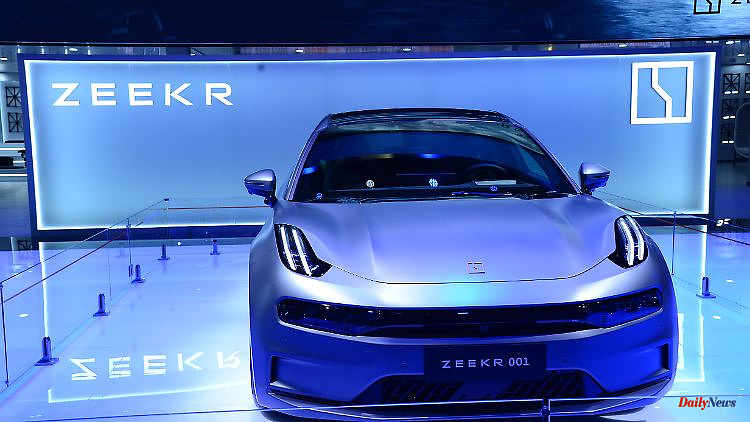In order to meet the demand for premium e-cars in China, the Geely group will launch the Zeekr brand in April 2021. After decent sales figures, the company is now reaching the limits of efficiency in production. An IPO on Wall Street could raise money for the next steps.
According to insiders, the premium subsidiary Zeekr of the Chinese electric car manufacturer Geely is aiming for the US stock exchange and wants to take in more than one billion dollars. Zeekr is targeting a valuation of more than $10 billion, two people familiar with the process told Reuters. Zeekr submitted the necessary documents last week.
The IPO in New York is targeted for the second quarter of 2023, said the two insiders and another person familiar with the process. According to two insiders, Zeekr had also considered an IPO in Hong Kong, but then decided to go to New York in hopes of a higher valuation. Geely declined to comment.
If the IPO goes through, it would be the first major offering by a Chinese company since July 2021, when the Beijing government tightened control over overseas-listed Chinese firms. Since the beginning of the year, only five Chinese companies have made their way to the US stock exchange, raising a total of $162.5 million - a fraction of the $12.8 billion raised in IPOs in 2021.
Zeekr was founded by Geely, officially Zhejiang Geely Holding Group, in April 2021 to serve growing Chinese demand for premium electric vehicles. Later that same year, the company launched the "001" model in China. Zeekr sold just over 60,600 cars in the first nine months of 2022, while Tesla sold about 285,900 of the "Model Y" in China over the same period.
However, with the sale of e-vehicles under multiple brands, Geely faces a complexity in production to reduce costs. Other e-vehicle manufacturers such as Tesla have already been able to advance this process with vertical integration of the production chain.












